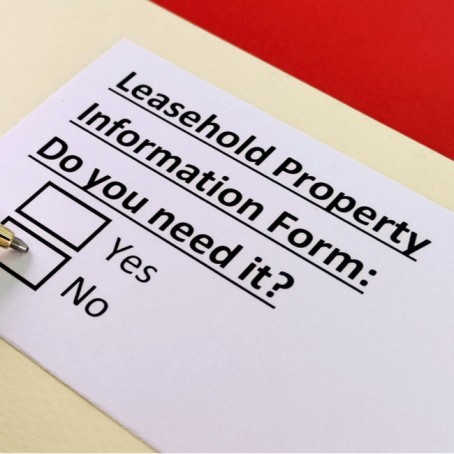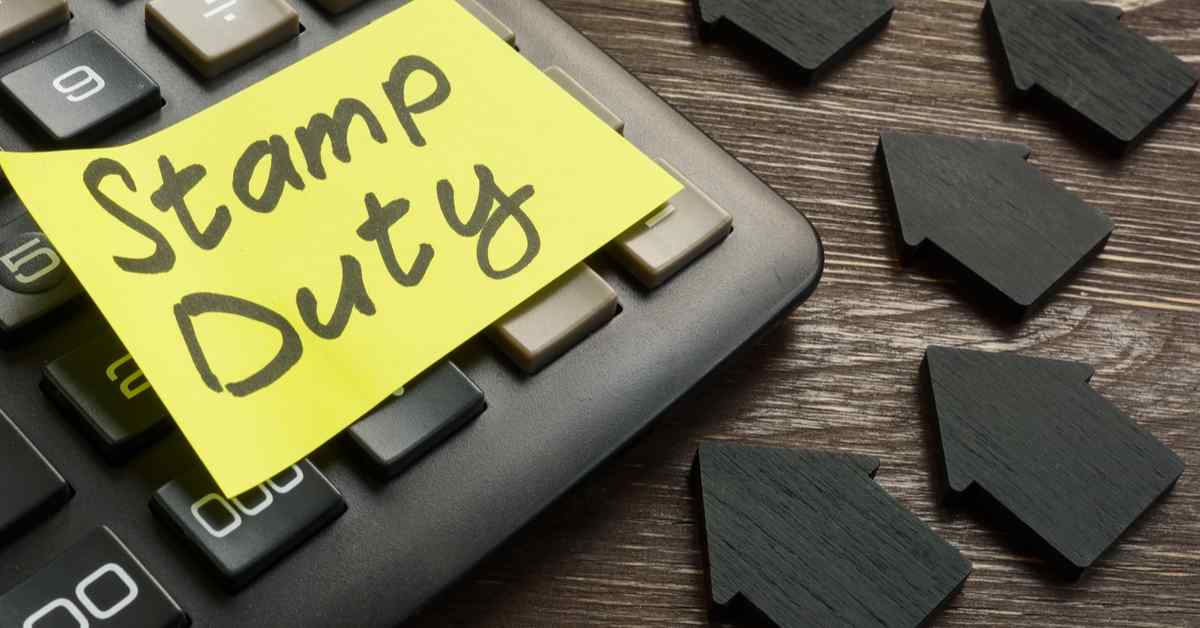Table of Contents
Quality Service Guarantee Or Painting Free

Get a rental agreement with doorstep delivery

Find the BEST deals and get unbelievable DISCOUNTS directly from builders!

5-Star rated painters, premium paints and services at the BEST PRICES!
Loved what you read? Share it with others!


Submit the Form to Unlock the Best Deals Today
Check Your Eligibility Instantly

Experience The NoBrokerHood Difference!
Set up a demo for the entire community

Tenant Super Relax Plan
Enjoy Hassle-Free Renting
 Full RM + FRM support
Full RM + FRM support Instant alerts & premium filters
Instant alerts & premium filters Rent negotiation & relocation help
Rent negotiation & relocation helpBuying a Leasehold Property: Important Things You Should Know
Table of Contents
A leasehold property refers to a real estate arrangement where an individual or entity (the lessee) is granted temporary ownership rights over a property by the landowner or lessor. These rights are typically established through a lease agreement for a specified duration, often ranging from 30 to 99 years. While the lessee has the right to use and enjoy the property during the lease period, ultimate ownership remains with the lessor. Leasehold properties may involve payment of lease rent, and the terms and conditions are governed by the Indian Registration Act and Transfer of Property Act.
What is a Leasehold Property: Leasehold Meaning and Features
A leasehold property is one that is granted to another individual through a lease agreement. In this arrangement, the individual who owns the property is referred to as the lessor, while the person taking the property on lease is known as the lessee. The property itself, which is granted to the lessee through the lease agreement, is termed as the leasehold property. It's common for developers to secure leasehold land for the construction of real estate projects.
Leasehold Property Features
Leasehold land typically spans 25-30 years to potentially 99 years, even extending to 999 years. Despite its long tenure, it does not equate to a legal land sale, as no sale consideration is involved. Ownership remains with the lessor. In contrast, freehold property grants full ownership and rights to the buyer without the need for permissions. Leasehold property entails ancillary costs like property tax and contract renewal borne by the buyer. Redevelopment requires consensus among freehold owners, lessors, and buyers. State department approvals are essential for lease deed execution and construction. Some states offer lease-to-freehold conversion options, advisable if available.
Quality Service Guarantee Or Painting Free

Get a rental agreement with doorstep delivery

Find the BEST deals and get unbelievable DISCOUNTS directly from builders!

5-Star rated painters, premium paints and services at the BEST PRICES!
Important Things You Should Know Before Buying a Leasehold Property
Consent & Legalities
Property buying is a complex process that requires permissions, sanctions, and consent from different authorities owing to the land rules of the state and the government. The main difference between freehold and leasehold property is that the buyer of the leasehold property needs to obtain state consent from the land records office before the parties can move towards creating the terms of the lease and legal contracts.
Lease Length
It is essential to understand that the buyer is not the “owner” of the property. Leasehold property meaning in India is different in most cases, if the Government owns the land, then the tenure of the lease will last 99 years. But there are cases where the leaseholder or the owner decides to extend the lease tenure to 999 years. If a buyer is presented with an opportunity to extend the tenure of the leasehold property from 99 to 999 years, then one should grab it immediately as it improves the property value in the long-term and also helps the buyer to get financing assistance from major banks.

Ground Rent
If you have read and understood the true meaning of what is a leasehold property, then you might have guessed that the buyer of such a property is not the “owner” and thus has to pay a certain amount as ground rent to the actual owner or the leaseholder. This rent can be decided by a mutual agreement but the buyer should know beforehand if the leaseholder intends to increase the rent in the future.
Maintenance Charges
Many of the properties that are leasehold are huge and can be used for commercial and residential purposes as well. One of the most important things that you need to understand about the leasehold land meaning is that the clarification about who shall bear the maintenance cost of the property. In most cases, the cost of maintenance that requires a major change to the property is often paid by the leaseholder or the owner, while the cost of the smaller changes to the property can be taken care of by the current buyer of the property provided that they have the permission of the landowner.
Property Restrictions
Since land ownership is still with the leaseholder, the buyer of any leasehold property should understand the restrictions that the owner wishes to levy on anyone occupying the land. It is entirely possible that the property owner has rules such as no pets allowed, no partying, or large gatherings in the property beyond the time of curfew. These restrictions may seem insignificant at first but it is always better to know the restrictions before buying this property rather than having conflicts about it later on.
Recommended Reading

Supreme Court Verdict on Society Maintenance Charges
January 31, 2025
132028+ views

What is the Difference Between Movable and Immovable Property?
May 1, 2025
59325+ views

What are Society Transfer Charges as per the Housing Act and Rules in 2025?
January 31, 2025
48575+ views

Everything You Need to Know About Indemnity Bond
January 31, 2025
36317+ views

A Comprehensive Guide to Karnataka Rent Control Laws and Tenant Rights
January 31, 2025
30167+ views
Risks for Home Buyers in Leasehold Properties
Understanding ownership in apartment buildings on leased land is crucial. A significant drawback for home buyers arises when the lease term on the land, often 30-33 years, ends, leading to uncertainty and the added cost of renewing the leasehold. Projects on short-term leases may also face funding issues, resulting in delays or non-completion. Redevelopment is complex due to the need for multiple authorities' consent for repairs or construction.
Obtaining a home loan for leasehold land properties also presents challenges, as the loan tenure can't exceed the remaining lease period. Lenders may hesitate to grant loans for properties with short or expiring leases, fearing non-renewal.
Actions for Home Buyers of Leasehold Properties
- Property Registration: Ensure that the property is registered in your name, establishing your legal ownership.
- Transfer Memorandum: Obtain a transfer memorandum, official permission from the development authority that allows the property owner (seller) to transfer rights to you as the home buyer.
- Leasehold Period: Prioritize projects on land with longer leasehold periods to mitigate potential ownership uncertainties and renewal hassles.
Advantages of Buying a Leasehold Property
There’s no denying that most property buyers will prefer to search for freehold land instead of leasehold but that does not apply to everyone. There are many advantages of choosing to buy a property on leasehold such as:
Affordability:
Buying a freehold property can become an expensive investment that may not be affordable for every buyer. When it comes to leasehold properties, the cost is comparatively less for an individual buyer as well as the property developer.
Legal Clearances:
Property verification has become very strict in recent years, especially in major cities in India. But, for a buyer who may not want the added anxieties about the land record formalities, it is better to buy leasehold property as the developer’s credentials are clear and so is the title.
Overhead Expenses:
Another advantage of buying a property on leasehold over freehold is that most of the major expenses about maintenance are usually taken care of by the leaseholder such as the developer or the Government and hence the overhead expenses are much lesser when compared to buying a freehold property.
Disadvantages of Leasehold Properties
Ground Rent
Leaseholders are obligated to pay ground rent to the freehold owner, and this rent may increase over time, resulting in higher charges for leaseholders.
Restrictions
Leaseholders have limited freedoms and typically require the freeholder's permission for property repairs or alterations on leasehold houses.
Mixed-Use Properties
Many leasehold properties serve both commercial and residential purposes. Understanding maintenance cost responsibilities is essential before investing in leasehold land. Major property changes are typically the leaseholder's responsibility, while smaller changes require permission from the landowner.
Pet Restrictions
Most leasehold agreements prohibit pets in the properties.
Sub-Letting
Subletting a leasehold property is generally not allowed.
Things to know about Converting Leasehold to Freehold Property
Before you begin the process of converting a Leasehold to a Freehold property, it is important to know the difference between the two-
| Leasehold Property | Freehold Property |
| A leasehold property involves leasing the land to the buyer by the owner, often the government. | Freehold property allows the owner to complete and unrestricted control of the land they own. |
| The ownership is temporary, with a specified lease duration, typically 30 to 99 years. | The owner can use the property as they see fit, within legal regulations. |
| The buyer pays lease rent for usage during the lease period. | No lease rent is typically required, as the owner holds perpetual ownership. |
The buyer can convert leasehold into a freehold property if the buyer has clearances and documentation such as a sale deed, No Objection Certificate (NOC) in case the property is under any mortgage, and the General Power of Attorney (GPA). This is a common practice in many of the tier 1 cities in India such as Delhi, Chandigarh, Mumbai, etc. and if both the buyer and the leaseholder agree to the conversion, the process of doing so is swift and hassle-free.
As with any formalities that deal with leasehold to freehold conversion, the buyer will have to pay a stipulated amount as the conversion charge to the land record department and in most cases, the authorities will only check the General Power of Attorney and registered agreement to sell the land. In few rare cases, the leasehold property can be converted into a freehold property by providing additional documentation such as house tax assessment and electricity connection
In short, if you are wondering about the complexities involved during the conversion of leasehold to freehold, then you can rest assured that so long as the documentation is clear and both (the owner and the buyer) have a mutual agreement, you will not face any resistance from the government authorities.

If you are planning to buy a leasehold property and are searching for some of the important things to know before deciding to buy, this is an informative blog that highlights the difference between freehold and leasehold property and whether it is a good option for buyers with a strict budget. People looking to know whether a leasehold property can be converted into a freehold property will also understand the procedure and various documents that are required to legally transfer the ownership.
If you’re buying a home and you need assistance with any legal paperwork don’t worry. NoBroker has a team of experts that can assist you so that the entire process is transparent and hassle-free. Click on the link below to know more about NoBroker Legal Services.

FAQs
Yes, it is completely legal and safe to buy a property that is under a lease from the owner or leaseholder.
A buyer is the owner of a freeholder property and has all legal rights as any landowner would have. On the other hand, a buyer of any property on the leasehold is only the “occupant” and not the owner as the owning rights lie on the leaseholder or the owner of the land.
In most scenarios, the tenure of the lease will be 99 years. The owner can decide to extend the tenure to 999 years. An ideal length should be more than 30 years which shall help the buyer to obtain financial assistance from major banks.
The owner can decide to gradually change the rent of the property and in most cases, the buyer is consulted about the change in rent amount.
Yes, you can easily transfer the ownership of the property and legally convert the leasehold property to freehold by completing the procedure and presenting the necessary documents.
Loved what you read? Share it with others!
Most Viewed Articles

Franking Charges Explained: Meaning and Benefits
January 31, 2025
1103624+ views

BBMP E-Khata Registration process for property owners in Bangalore, Karnataka in 2025
March 19, 2025
145603+ views

Supreme Court Verdict on Society Maintenance Charges
January 31, 2025
132028+ views

Revenue Stamp in India: Meaning, Types, Uses, Legal Value & Where to Buy in 2025
January 31, 2025
96315+ views

Stamp Duty and Registration Charges in Bangalore in 2025
January 23, 2025
93426+ views
Recent blogs in
Rectification Deed Charges in Andhra Pradesh: Fees, Stamp Duty, Documents & Process in 2025
June 20, 2025 by Kruthi
Rectification Deed Charges in Maharashtra: Registration, Fees, Documents and Stamp Duty in 2025
June 20, 2025 by Kruthi
Rectification Deed Charges in Telangana: Regiteration, Fees, Documents and Stamp Duty in 2025
June 20, 2025 by Kruthi





Join the conversation!